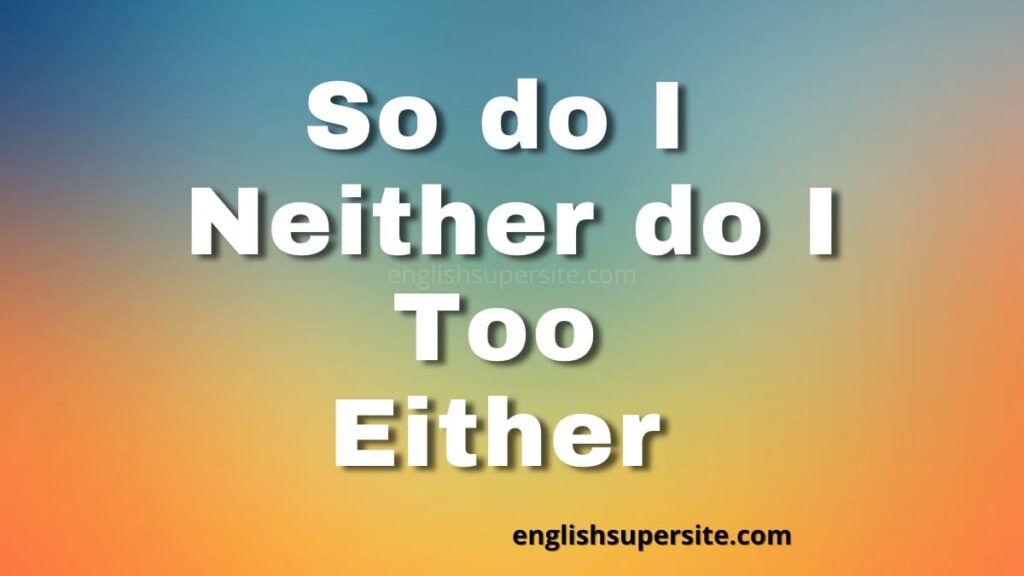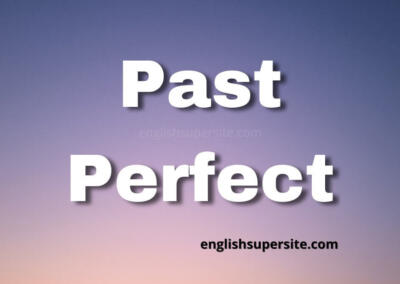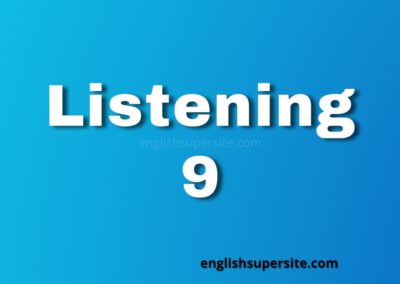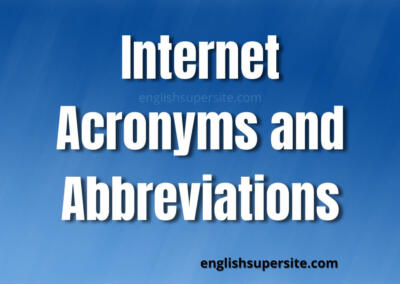
So do I – neither do I – too – either
There are several ways to express agreement and disagreement in English. So, too, either and neither can be very confusing.
However, once you understand the use of them, you will have a great variety of ways to agree or disagree with someone, significantly improving your fluency in English.
So do I
So is frequently used in the expression so am I to denote a comparable action or conduct:
– I love ice cream. So does my sister. (My sister also likes ice cream).
We use so do I to say a positive sentence that I agree:
So am I = I am too
A: I work in a school.
B: So do I.
A: I went to a party last night.
B: So did I. (I went to a party too.)
A: I am hungry.
B: So am I.
A: I am very tired today.
B: So am I.
A: I am working.
B: So am I.
A: I would like to live in England.
B: So would I.
Neither do I
We use neither do I to say that a negative sentence is also agreed but in a negative form:
Neither am I = I’m not either
A: Ana can’t drive.
B: Neither can Mike.
A: I haven’t got a key for the locker.
B: Neither have I. (I haven’t either).
A: I never go to the theater.
B: Neither do I.
A: I never go to the beach to relax!
B: Neither do I.
A: I will not be able to go to the party next week.
B: Neither will I.
A: I am not a doctor.
B: Neither am I.
NOTE:
So have I = I have too.
Neither have I = I have not either.
Nor am I = Neither am I.
Neither is also used to indicate a lack of association or connection. It is often used to pair with either and follow it, as a negative statement:
– I don’t want to go to the park, and neither do I want to go to the beach.
A: Do you want ice cream or cake?
B: Neither, I am on a diet!
Click here to learn more about Either vs Neither.
Too
We usually use too after a positive verb. The word too denotes excellence and agreement:
A: I love ice cream.
B: I love ice cream, too.
A: I am happy.
B: I am happy too.
A: Jonathan is a doctor.
B: His sister is a doctor too. (His sister is also a doctor).
ATTENTION: the word “too” can also denote excess:
– I’m too exhausted to leave. (I don’t want to leave.)
– That is too much for me. (I can’t take it anymore.)
Either
We usually use either after a negative verb.
A: I don’t like ice cream.
B: I don’t like ice cream either.
A: I am not happy.
B: I am happy either.
A: Jonathan is a doctor.
B: His sister is not a doctor either.
When used in the phrase either…or, either denotes a decision between two options or object:
– I’m not sure if I want to go to the park or the beach; either one is acceptable to me.
A: Do you want ice cream or cake?
B: Either one, I like them both!
Click here to learn more about Either vs Neither.
Study Also:
Abbreviations Cohesion and Coherence Collocations Comparative Conditionals Frequent Errors Future Continuous Future Perfect Future Perfect Continuous Future Simple Homonyms Interjections Journaling Learn English Linking Words Logical Flow Past Continuous Past Perfect Past Perfect Continuous Past Simple Plural Present Continuous Present Perfect Present Perfect Continuous Present Simple Pronunciation Question Tags Quiz Quotes Simple Future Simple Past Simple Present Spelling Superlative Transition Words
Share with your friends!






